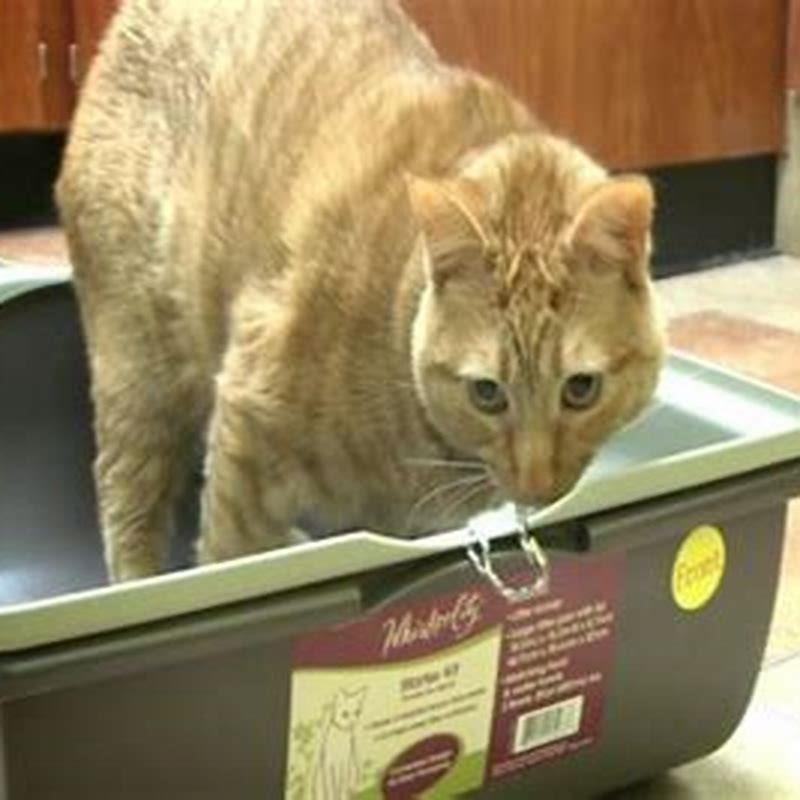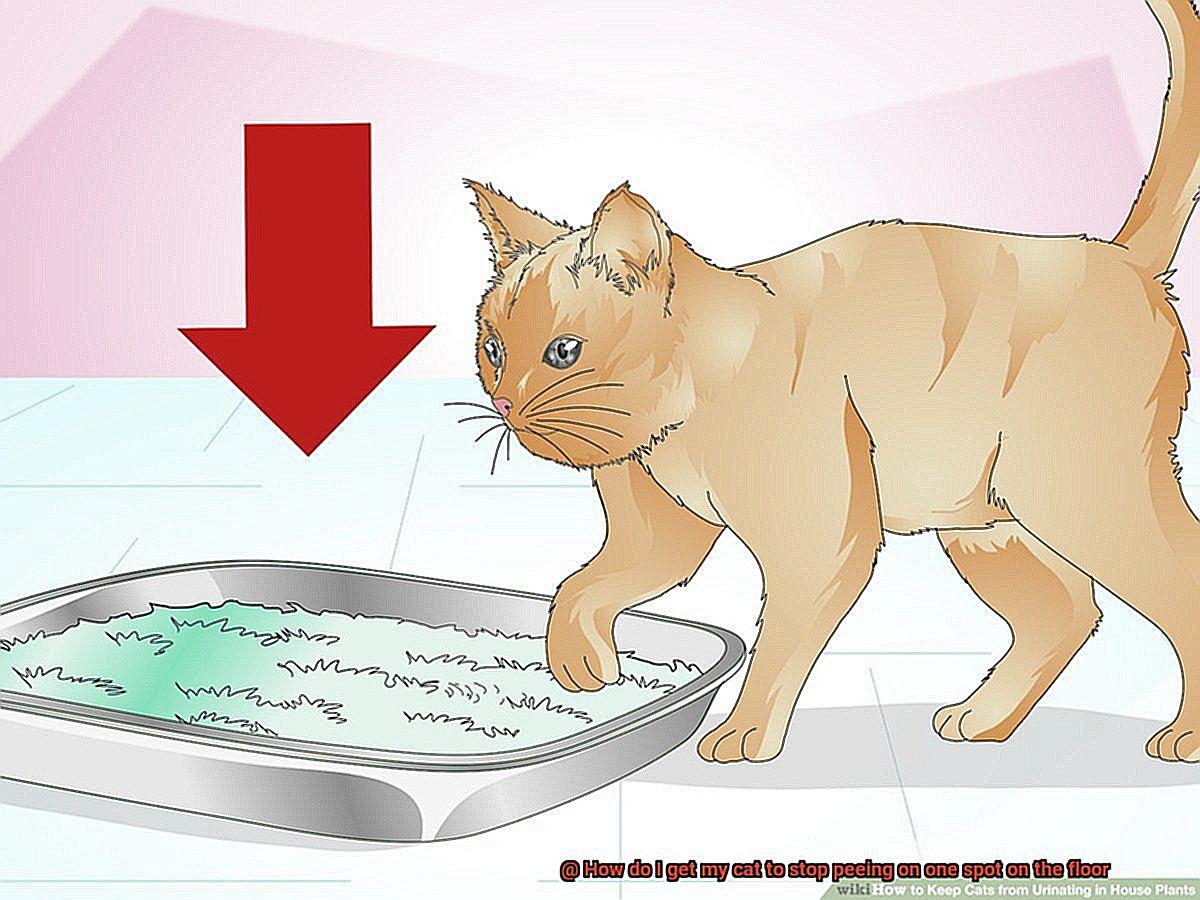The sight of a puddle on the floor can send any cat owner into a spiral of frustration and worry. “Did they do that on purpose?” we wonder, our minds conjuring images of our furry companions plotting revenge for our offenses. While it’s tempting to attribute these accidents to intentional spite, the truth is, cats don’t pee on the floor to get back at us; there’s a complex interplay of factors that lead to these mishaps. This article dives into the world of feline urination and explores the reasons behind these unwanted surprises, helping you to better understand your cat’s behavior and potentially prevent future occurrences.

Image: diyseattle.com
Beyond Spite: Understanding Feline Urination
Cats are meticulous creatures when it comes to their bathroom habits, They prefer designated areas for elimination, often choosing secluded spots that offer privacy and a sense of security. When a cat pees outside their litter box, it’s often a sign of a deeper issue, They aren’t intentionally trying to make a mess; they’re seeking relief from discomfort or expressing a need that wasn’t met.
Imagine the feeling of needing to use the restroom but encountering a clogged toilet or a filthy stall. This frustration is similar to what a cat experiences when their litter box is unsatisfactory. It’s important to remember that a cat’s urinary system is closely linked to its emotional well-being. Stress, anxiety, fear, and discomfort can all contribute to problems with urination, Even a seemingly minor change in their environment, like the introduction of a new pet, can trigger such sensitive responses.
Unmasking the Root Causes
To address the issue of cats peeing on the floor, it’s essential to understand the possible causes. Often, it boils down to a simple matter of hygiene. A dirty litter box is a major deterrent for even the most fastidious cat. They might refuse to use a soiled litter box, opting for a cleaner spot, even if it means venturing outside their designated area.
Beyond hygiene, several other factors can play a role:
- Medical Conditions: Urinary tract infections (UTIs), bladder stones, and other medical issues can lead to increased urination and leakage. If your cat develops a sudden change in urination habits, consult a veterinarian to rule out any underlying health problems.
- Stress and Anxiety: As mentioned earlier, cats are sensitive creatures. Stress from changes in their environment, like the arrival of a new pet, moving to a new home, or even a renovation project, can trigger anxiety and lead to inappropriate urination. Other sources of stress could include loud noises, unfamiliar visitors, or even a change in their routine.
- Territorial Issues: Cats are very territorial and might mark their space with urine to signal their presence. If a new pet enters the home or if there are inter-cat conflicts, a cat might urinate outside the litter box to reinforce their territorial boundaries.
- Litter Box Aversion: Sometimes, it’s not just the cleanliness of the litter box but the box itself, the type of litter, or the location that the cat dislikes. While cats generally prefer a covered box, some prefer open ones, and others might dislike certain types of litter. Even the placement of the litter box can influence their choice to use it.
The Role of Hormones in Feline Urination
Hormones, particularly those associated with sexual maturity, can also play a role in urinary behavior. Intact (non-neutered) cats, especially male cats, tend to “spray” urine to mark their territory, especially during the breeding season. Neutering or spaying can significantly reduce these hormone-driven behaviors.

Image: www.21cats.org
Latest Trends and Expert Advice
Recent studies have explored the connection between stress and feline urinary behavior. Research indicates that a cat’s environment plays a crucial role in their well-being and can even contribute to health issues. Creating a low-stress environment for your cat is paramount,
Here are some expert-backed tips for reducing stress and preventing accidents:
- Keep Litter Boxes Clean: Scooping the litter box at least once a day, and ideally twice, can drastically reduce the chances of your cat using an alternative spot.
- Provide Multiple Litter Boxes: For multi-cat households, having a dedicated litter box for each cat is a good rule of thumb. Even if you have a single cat, offering them two or three boxes in different areas of the house can give them more options and potentially increase their comfort level.
- Experiment with Litter: Different cats prefer different litters. If your cat appears hesitant to use the litter box, try switching to a different type. Some cats prefer clumping litter, while others might enjoy a clay-based alternative.
- Calming Pheromones: Synthetic pheromones, available in sprays or diffusers, can help create a calming atmosphere for your cat and reduce stress levels. These pheromone products mimic the calming signals cats release naturally, reducing anxiety and promoting a sense of security.
- Create a Safe Space: Designate a private, quiet space where your cat can retreat and escape the stresses of daily life. This could be a cat tree, a window perch, or even a cozy bed tucked away in a quiet corner.
Remember, patience and consistency are key. If you suspect a medical cause or your cat’s behavior doesn’t improve with these tips, consult your veterinarian for advice and potential treatment options.
FAQs About Feline Urinary Accidents
The following frequently asked questions about feline urinary accidents may help you better understand your cat’s behavior and find effective solutions.
Why does my cat always pee on my bed?
Several reasons could explain this behavior, some more serious than others. It could be a sign of a UTI, a general litter box aversion, stress from a recent change, or simply a preference for the warmth and comfort of your bed. This could also be a territorial marking behavior, especially if the bed is considered a safe haven for your cat. A veterinarian can help you pinpoint the specific cause based on your cat’s history and symptoms.
How do I stop my cat from peeing on the floor?
The first step is to ensure your cat has a clean, accessible, and appealing litter box. If the problem persists, address your cat’s potential stressors and create a calm and comforting environment. Consider using pheromone products, providing enrichment toys, and minimizing distractions. If the behavior continues, consult your veterinarian as it could indicate a medical condition.
Can I punish my cat for peeing on the floor?
Punishing a cat for an accident is counterproductive. Cats don’t associate punishment with the act of urinating. It simply increases anxiety, potentially exacerbating the problem. Instead, focus on understanding the underlying cause and addressing it with appropriate solutions.
Do Cats Pee On The Floor Out Of Spite
Conclusion
While it might seem like your cat is peeing on the floor out of spite, it’s important to remember that they’re usually communicating a need or discomfort. By addressing the underlying causes, from improper litter box hygiene and stress to medical conditions, you can encourage your feline companion to use their designated bathroom areas. Remember, patience, consistency, and understanding are crucial when dealing with this common problem. Have you faced similar issues with your feline friend? Share your experiences and tips in the comments below!






